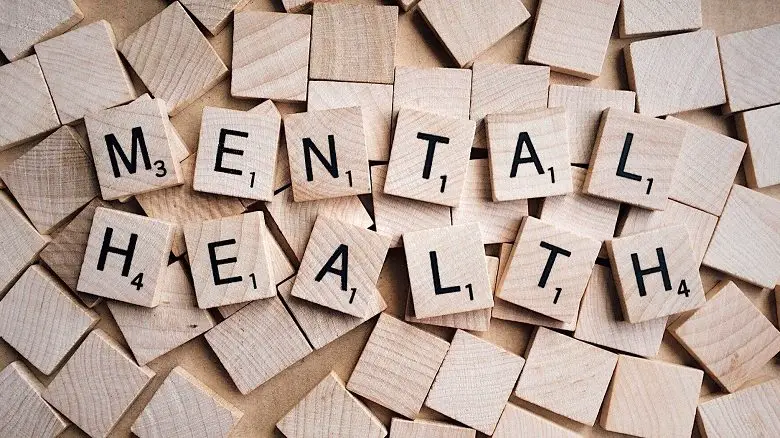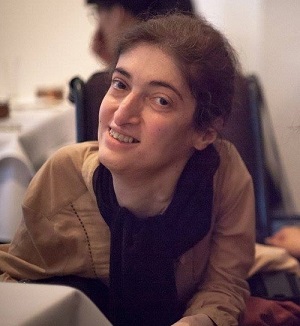
Covid-19: how the messaging is impacting disabled people’s mental health
Since the outbreak of Covid-19 in the UK, we’ve been bombarded by messages from the government and media, many of which have focused on disabled people and those with health conditions. Writer Raya AlJadir lays out her fears and frustrations with what’s being said, along with the impact it’s having on hers and others’ mental health.
I would like to think that I am a fairly relaxed person. I am very patient, don’t get annoyed easily and rarely get anxious or panicky. However, all of these qualities slowly started to evaporate when Covid-19 reared its ugly head in the UK.
I have lived with a muscle-wasting condition and respiratory problems since birth. I am used to the fear of getting an infection as, if I do, it is a complicated ordeal.
But it wasn’t fear of the virus that I felt, it was frustration.
Disabled people being devalued by Covid-19
 Right from the start, the nation was ‘reassured’ with what is essentially an ableist message. Time and time again, from both the government and the media, we heard, “Don’t panic, the virus will only affect the elderly, disabled people and those with underlying health issues.”
Right from the start, the nation was ‘reassured’ with what is essentially an ableist message. Time and time again, from both the government and the media, we heard, “Don’t panic, the virus will only affect the elderly, disabled people and those with underlying health issues.”
This automatically started alarm bells ringing in my head, not because I was scared of the virus, but because I suddenly felt worthless. I, and every other disabled person, was being used to make others feel ‘safer.’ Do we not matter at all?
At first, I thought, “Maybe I am being negative. Maybe they are only laying out the facts.” But as the first days and weeks unfolded, the messaging didn’t change.
We also discovered that the strategy was developing ‘herd immunity’. This basically entails the majority of the population getting Covid-19 and therefore becoming immune to it. This plan could possibly save the economy and lives.
But what about disabled people and those who are chronically ill or have a weak immune system? To me, it was further confirmation that we aren’t being thought about.
It made me feel like a third-class citizen, simply a number in a list of data that has little value. This concept was the one that instilled fear in me. I found it hard to cope initially, and it led to many sleepless nights.
Covid-19 impacting everyone’s mental health
I decided to talk to close friends, disabled and not, about my feelings. I was met with a reaction I did not expect; I was told to stop because I was being morbid and negative. All I wanted to do was share my thoughts and discuss our shared fears.
It was then that I realised the virus has become a taboo topic, like mental health or abuse. Everyone is being bombarded at every angle with information, it has become overwhelming.
I also started to notice friends going quiet, not communicating as often. In WhatsApp groups, I was being reminded or told not to post or discuss anything related to coronavirus.
To me, this was an indication that everyone is struggling with panic and anxiety.
How disabled people are coping mentally
I decided to reach out to other disabled people I didn’t know to see if I was alone in my thinking.
Having posted on the DHorizons Tribe, I found that people were more forthcoming with their feelings. Most were scared by what was in the news, especially the message about the virus hitting disabled people the hardest.
One person told me: “My anxiety is steadily increasing. I’m resigned to the fact that I will get it, but terrified that I won’t get decent care by the time it hits. The prospect of months of self-isolation followed by potential death feels like a dark cloud that has appeared out of nowhere. It’s hard to push it aside and maintain a positive outlook.”
This was echoed by another person as she explained that her mental health and anxiety, as well as her children’s, are already being affected. She said: “The government’s advice to sanatise and wash hands is all very well, but my wheelchair is exposed to everything and trying to keep it clean, so there is only so much I can do. My children are very worried that they are going to lose.”
Furthermore, the Prime Minister telling the nation we will all lose loved ones has added to her anxiety. “My nan, who is my rock and helped with my depression, is very vulnerable. The Prime Minister’s comments that loved ones will die has not helped at all.”
But the biggest struggle seems to be staying strong for others when you’re not coping very well:
“I am trying to keep my anxiety in check, but I am finding myself having panic attacks already – which certainly doesn’t help. Trying to reassure my kids when I don’t fully believe what I’m saying is very difficult.”
Someone else commented on how people’s feelings shouldn’t be discounted.
“I think it’s crucial that whatever you are feeling about what was going on at the moment, that is perfectly normal, i.e. it does not make you mentally ‘ill’. I think there is a real danger that people’s normal reactions will be pathologised [treated as abnormal] by GPs/psychiatrists etc.
This would be both unhelpful and unnecessary. I think it would be more helpful to consider what aspects of this new way of being people want to carry on with and applauding people’s resilience.”
Although reading other people’s worries was sad, in a weird way, I become reassured. Self-isolating means I may be physically alone at times, but I’m not isolated in my fears.
However, there were a couple of positive comments too. It reminded me that many disabled people, including myself, have to isolate on a regular basis and, as such, are very resilient.
One woman said: “I really don’t think it’s any different from any other day. Plus there has been a lot more online to do and more people are asking how I am. If this were normal the normal practice, I’d feel a lot better and more able to cope with things.”
Another said: “I think that a lot of disabled people are actually better equipped to cope with lockdown than a lot of non-disabled people. We are often used to being limited in terms of going out, have to be organised… and find our own entertainment.”
To me, this is also confirmation that disabled people are not ‘vulnerable’ and that the government’s messages and approach are ableist.
By Raya AlJadir
More on Disability Horizons…